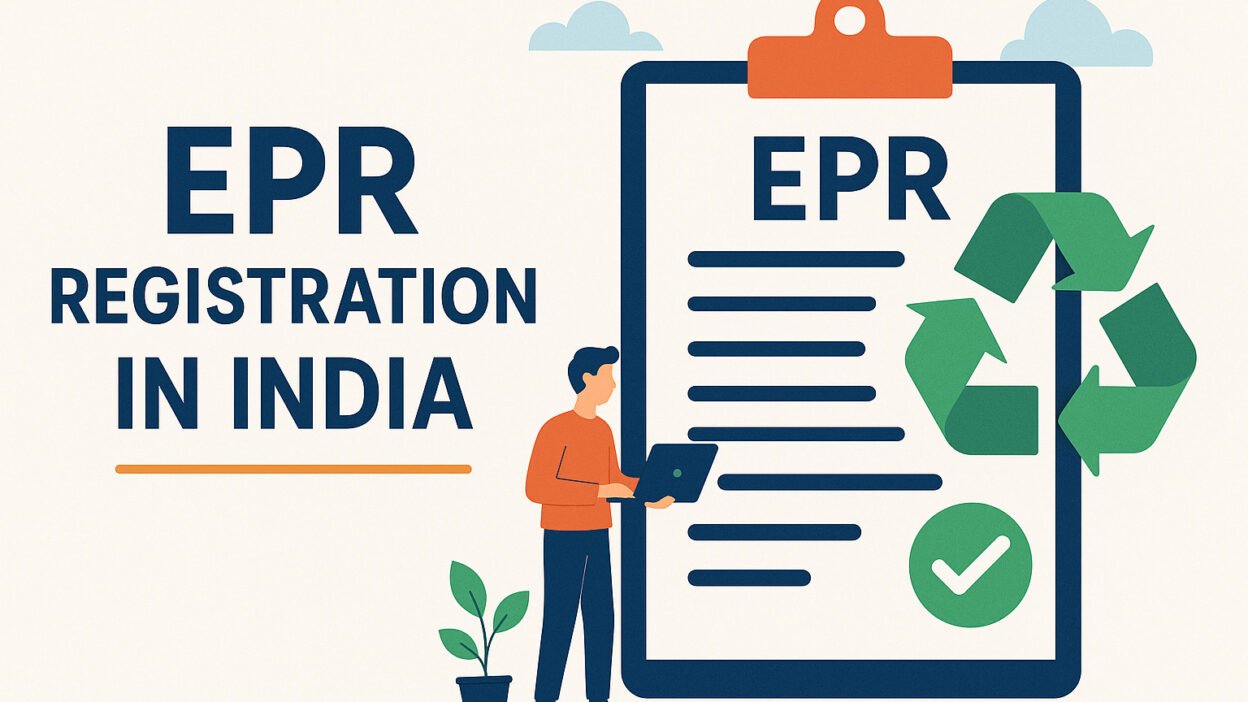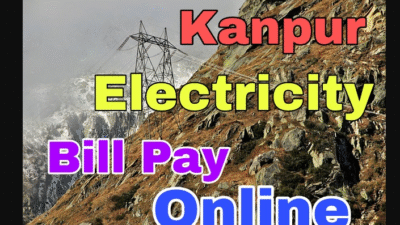Introduction
In recent years, environmental regulations have gained significant importance in India, especially with the growing challenges of waste management and sustainability. Extended Producer Responsibility (EPR) is one such initiative that mandates producers, importers, and brand owners to take accountability for the life cycle of their products, particularly for plastic waste, electronic waste, batteries, and packaging materials. When businesses plan for EPR Registration in India, the process may appear complicated due to multiple legal requirements, documentation needs, and compliance guidelines. This is where choosing the right EPR Consultant in India makes the journey smooth, efficient, and compliant with the Central Pollution Control Board (CPCB) rules.
What is EPR and Why Does It Matter?
Extended Producer Responsibility (EPR) is a policy approach where producers are legally obligated to manage the disposal or recycling of their products after consumer use. It is essential because it shifts the responsibility from government and municipal authorities to businesses that generate or import these products. By ensuring producers handle waste responsibly, India moves towards a cleaner, more sustainable future. EPR helps in reducing landfill waste, improving recycling rates, and promoting eco-friendly production practices. For businesses, it is not just about compliance but also about contributing to the circular economy and building a reputation as a responsible brand.
Legal Framework for EPR Registration in India
The EPR Registration in India process is primarily governed by the Central Pollution Control Board (CPCB) under the Ministry of Environment, Forest, and Climate Change. Different categories of waste have specific rules: Plastic Waste Management Rules, E-Waste Management Rules, Battery Waste Management Rules, and Tyre Waste Management Rules. Each rule specifies the responsibilities of producers and the steps required for compliance. For example, plastic producers must ensure recycling or disposal through authorized agencies. E-waste producers must collect back used electronics and send them to certified recyclers. These regulations ensure that producers do not overlook their post-consumer responsibilities.
Who Needs EPR Registration?
Not all businesses require EPR registration, but it is mandatory for producers, importers, and brand owners in specific industries. Companies dealing in plastics, electronic goods, batteries, or tyres are directly under this framework. Even e-commerce platforms and distributors may be held accountable under certain rules. For instance, a smartphone manufacturer in India or an importer of packaged goods cannot sell products legally without valid EPR authorization. Thus, understanding whether your business falls under these categories is the first step before beginning the registration process.
Step-by-Step Process of EPR Registration
While the detailed process may vary slightly depending on the waste category, the general procedure for EPR Registration in India involves:
- Application Submission – Businesses must file an application with the CPCB through its online portal, providing details of products, waste generated, and recycling plans.
- Document Preparation – Essential documents include GST certificates, company incorporation details, PAN card, product details, recycling agreements, and an EPR plan.
- EPR Plan Approval – Companies must outline how they intend to collect and recycle waste. This plan is evaluated by CPCB for feasibility and compliance.
- Authorization Issuance – Once verified, CPCB grants EPR authorization, which is valid for a specific period, usually 3–5 years.
- Compliance Reporting – Businesses must submit regular reports about the quantity of waste collected, recycled, or disposed of through authorized channels.
Common Challenges in EPR Registration
Many businesses face hurdles during registration due to lack of awareness or incomplete documentation. Common challenges include:
- Preparing a detailed recycling plan that meets CPCB standards.
- Collaborating with certified recyclers and waste handlers.
- Ensuring timely submission of compliance reports.
- Keeping up with evolving environmental regulations. Such challenges highlight the importance of working with an expert EPR Consultant in India who understands the nuances of the law and can help businesses avoid costly penalties.
Role of an EPR Consultant
An EPR Consultant in India plays a crucial role in bridging the gap between businesses and regulatory authorities. Their expertise ensures that every step of the registration process is handled smoothly. Consultants help businesses with documentation, liaising with CPCB, developing effective EPR plans, and setting up systems for waste collection and recycling. More importantly, they provide ongoing compliance support, ensuring that companies remain aligned with the law even after receiving authorization.
Benefits of Hiring an EPR Consultant in India
Hiring an EPR consultant brings multiple advantages:
- Expert Guidance: They interpret complex environmental rules into practical steps.
- Time-Saving: Consultants streamline processes, saving businesses from lengthy trial-and-error methods.
- Risk Mitigation: Avoid penalties, delays, and rejections by ensuring accurate applications.
- Sustainability Advantage: Consultants design strategies that align compliance with sustainable business practices.
- Cost Efficiency: By optimizing recycling and compliance methods, consultants can reduce long-term operational costs.
Why Compliance is Non-Negotiable
Non-compliance with EPR regulations can result in penalties, cancellation of business licenses, and reputational damage. In a competitive market, businesses that prioritize compliance are seen as more trustworthy and eco-conscious. Furthermore, global companies prefer working with suppliers who already follow sustainability practices. Therefore, being compliant is not only about following the law but also about gaining a competitive edge in the market.
Impact of EPR on Businesses and Society
The implementation of EPR Registration in India has created a ripple effect across industries. Businesses now focus more on sustainable packaging, recyclable materials, and reverse logistics. Society benefits from cleaner surroundings, reduced pollution, and better waste management systems. Consumers are increasingly choosing brands that demonstrate eco-friendly practices, making EPR compliance an important part of brand reputation management.
Case Studies of EPR Success in India
Several companies in India have successfully implemented EPR strategies. For example, leading electronics brands have set up take-back programs for old devices, ensuring they reach authorized recyclers. Plastic manufacturers have partnered with NGOs and waste collectors to recycle packaging waste. These success stories show that with proper planning and the right consultant, EPR compliance can be turned into an opportunity rather than a burden.
How to Choose the Best EPR Consultant in India
With many consultants offering services, businesses must be cautious in selecting the right partner. Factors to consider include:
- Experience and Expertise: Look for consultants with a proven track record in multiple industries.
- Knowledge of CPCB Guidelines: Ensure they stay updated with evolving environmental laws.
- Transparency: A good consultant provides clear timelines and cost structures.
- Support Services: Choose someone who offers end-to-end services, from registration to compliance reporting.
- Client Feedback: Check reviews or testimonials to gauge credibility.
Future of EPR in India
As India continues its journey toward becoming a sustainable economy, EPR regulations will only become stricter. Businesses will need to adopt innovative methods of recycling, use biodegradable packaging, and collaborate with stakeholders for waste management. Having the right consultant by your side will ensure long-term compliance and growth.
Conclusion
Navigating the process of EPR Registration in India can be complex for businesses, but with the right support, it becomes manageable and beneficial. Choosing an experienced EPR Consultant in India ensures not only smooth registration but also long-term compliance and sustainability. By prioritizing EPR, businesses contribute positively to the environment while securing their place in a competitive and responsible marketplace. Compliance today is an investment in a sustainable tomorrow.




